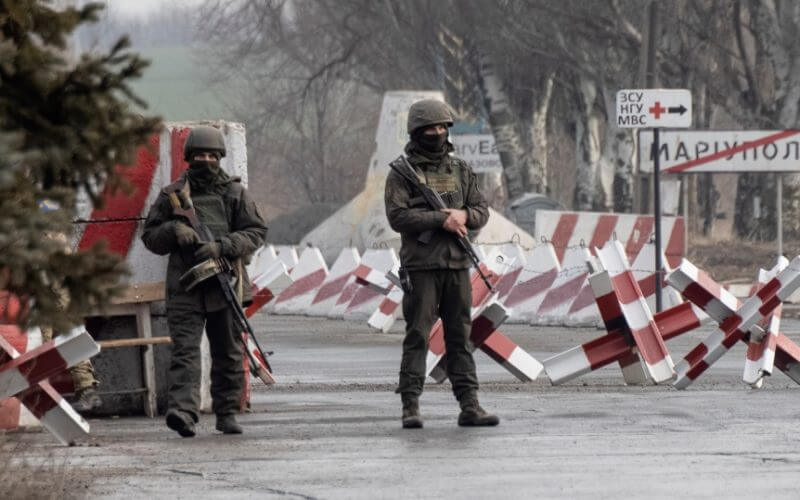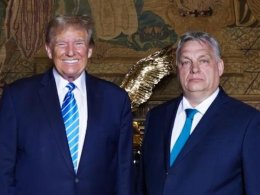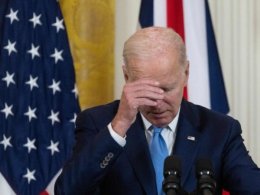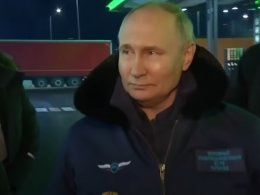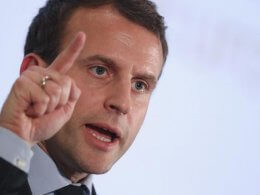CTV News
As Russia continues to mobilize its troops and military equipment near the Ukrainian border, tensions between Moscow and the West continue to rise.
The Kremlin's actions have sparked concerns over the potential for a Russian invasion, while Canada, the U.S. and other NATO allies have promised to retaliate if Russia continues its aggressions.
Here is a timeline of some of the key moments of the ongoing crisis:
November 2013: The "Euromaiden" protests erupt in the Ukrainian capital of Kyiv after the country's then-president, Viktor Yanukovych, shelves a free-trade deal with the EU in favour of closer ties to Russia.
February 2014: Protests continue to spread across Ukraine, with police firing live ammunition at demonstrators. The Ukrainian parliament votes to impeach Yanukovych and the interim government draws up an arrest warrant for the ousted president. However, Yanukovych flees to Russia, decrying his removal as a "coup."
February-March 2014: Russian troops take over Ukraine's Crimean Peninsula and seize the regional parliament and government buildings.
March 2014: The regional parliament holds a referendum on the status of Crimea just two weeks after the Russian military occupation begins. Over 95 per cent vote in favour of joining the Russian Federation. Russia then signs a treaty with Crimean leaders to formally annex the peninsula.
In response, the leaders of the G8 remove Russia from the bloc, which is now known as the G7. The annexation is also declared illegal in a non-binding resolution adopted by the UN General Assembly.
April 2014: Pro-Russia separatist militants take control of the Donbas region of eastern Ukraine. These militants are believed to be supported by the Russian government, although Moscow has denied being directly involved in the conflict.
March-December 2014: Throughout the year, then-Canadian prime minister Stephen Harper announces numerous sanctions affecting Russian and Ukrainian companies and individuals involved in the annexation of Crimea and the armed separatist movement in Donbas.
In retaliation, Russia imposes entry bans on 13 Canadian lawmakers and officials, including Liberal MP Chrystia Freeland, who would later become Canada's Deputy Prime Minister.
September 2015: Canada commences Operation UNIFIER, sending around 200 Canadian Armed Forces (CAF) members every six months to help the Security Forces of Ukraine with military training. CAF members are expected to remain the country until March 2022.
June 2016 – March 2021: Canada adds more Russian and Ukrainian individuals and companies to its sanctions list. So far, these measures have affected more than 440 individuals and entities.
July 2016: The Canada-Ukraine Free Trade Agreement is signed, entering into force in August of the following year.
July 2019: Actor and comedian Volodymyr Zelensky is elected President of Ukraine in a landslide vote, ushering in a new era of Ukraine-Russia relations.
September 2019: Whistleblowers allege that then-U.S. President Donald Trump had frozen US$400 million in security aid for Ukraine in an attempt to coerce Zelensky into investigating political rival Joe Biden and his family for damaging information.
November 2021: Satellite imagery shows a build-up of Russian troops on the border with Ukraine, stoking fears of a potential invasion. Zelensky also says that Russia had mobilized 100,000 soldiers in the border area, along with tanks and other heavy equipment.
Dec. 7, 2021: U.S. President Joe Biden speaks with his Russian counterpart over a video call. Putin called for NATO to guarantee an end to eastward expansion while Biden threatened to impose harsh economic sanctions if Russia invades Ukraine.
Jan. 2, 2022. In a call with Zelensky, Biden promises that the U.S. and allies with act "decisively" if Russia further invades Ukraine.
Jan. 22, 2022: Canada offers a $120-million loan to Ukraine aimed at bolstering the country's economy. Prime Minister Justin Trudeau says the federal government is also looking into expanding its UNIFER mission, providing “defensive weapon and equipment" and imposing more sanctions on Russia.






